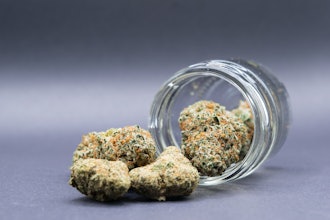
HOUSTON (AP) — In 2018, Jon Singleton requested his release from the Houston Astros after being suspended 100 games following a third failed marijuana test while in the minors, choosing to walk away from baseball rather than face the suspension and everything that came with it.
"I just didn't want to play baseball anymore," he told The Associated Press earlier this month. "I knew I had to serve 100 games, and serving 100 games with this organization and the position I was in was not going to be a good thing for me. It was going to take me down a dark road. So, at that point, I just wanted to be done with baseball and kind of get away from everything."
A year later, marijuana was removed from MLB's banned substances list. It would be a couple more years before the left-handed slugger returned to organized baseball in the Mexican League.
He returned to the majors for the first time since 2015 this season, first with Milwaukee and now back with the Astros. The former top prospect, now 31, wonders what his career could have been if marijuana — currently legal in 23 states — was taken off the banned substances list sooner.
"I definitely think the way things are handled now, my career would have definitely been a lot different," he said. "From the way the players see things, the way staff sees things, the way it's even handled in the commissioner's office, my career definitely would have been a lot different."
He's looking to find success in the majors for the first time this season and is getting extended playing time at first base with José Abreu out with an injury. Singleton starred for the Astros in his first home game Friday night with two homers and a career-high five RBIs.
His career to this point has been noteworthy mostly because of his repeated marijuana suspensions.
His first positive test came in June 2012 and the second in December of that year. He was suspended 50 games for each of those and spent a month in a rehabilitation center after the second one.
Before the 2014 season, he shared his struggles with marijuana in a candid interview with the AP.
"At this point it's pretty evident to me that I'm a drug addict," he said then. "I don't openly tell everyone that, but it's pretty apparent to myself. I know that I enjoy smoking weed, I enjoy being high and I can't block that out of my mind that I enjoy that."
Despite his suspensions, the Astros signed him to a $10 million, five-year contract that summer just before he made his major league debut June 3. At that time, major league players were not tested for marijuana.
He was unable to replicate his minor league success in the majors and played in just 114 games for the Astros in 2014 and 2015. He was soon back in the minors — and subject to marijuana testing again.
He spent 2016 in Triple-A and was in Double-A the entire 2017 season before being slapped with his last suspension.
The stigma of his positive tests dogged him for years, and he said many made assumptions about him because of them.
"People thought I was a bad person. I had bad character," he said. "People didn't think I deserved the success I had, the money that I had. I was definitely vilified."
Though plenty of others were suspended for positive drug tests, Singleton felt like the poster child for baseball's ban on minor league marijuana use.
"I was definitely made an example of," he said. "But I'm just glad that things have changed for the better now."
The suspensions took a toll on his mental health. At the time of his last one, Singleton said he simply "wasn't in a good spot." He used the time away from baseball to work on himself and focus on being a good father to his young daughter.
"There were a lot of things I did, from going to therapy, to consistently working out and changing my diet," he said. "There's a lot of different things I did in life that contributed to me becoming a different person."
Singleton said the biggest thing that helped him during that stretch was therapy.
"It helped me work through a lot," he said. "It helped me work through anxiety, it helped me work through depression, helped me work through substance abuse."
Back then, Singleton felt like people wouldn't even consider the possible benefits of marijuana.
"I think a lot of that is people were so close-minded when it comes to things like that," he said. "So, they were not even open to the idea of this being something that can help someone. But everyone has their own opinions. Everyone's life is affected differently by everything. So, it's something I can't really be mad at."
He believes attitudes on the subject have shifted in the last few years amid a wave of states decriminalizing and legalizing marijuana.
"I definitely get the vibe from the players to the coaching staff that this is not really an issue that anyone's worried about," he said. "They've all moved forward from it."
Astros manager Dusty Baker told the AP that while he doesn't know Singleton well yet, he's not at all concerned about his past. He said Rick Sweet, who manages Milwaukee's Triple-A team, called him after Singleton signed with the Astros to say that "he was one of the best guys that he ever had in his life."
"I'm not here to judge anybody on past crimes that are no longer crimes, because we could all be judged on past crimes," Baker said. "But who are we to judge each other?"
Baker said he had a talk with Singleton when he arrived in Houston but declined to give details of the interaction. He said everyone has a past and that he deals with players based on his interactions with them and nothing else.
"I tell everybody when they come to my team, everybody comes with a jacket, which is a reputation," Baker said. "And it's up to you to enhance that jacket or delete the jacket and I'm willing to give you another shot."
And while Singleton said marijuana is no longer a big part of his life and that he only uses it "sparingly" now, he's glad that players aren't penalized for it anymore.
"I think it helps a lot of people, a lot of people can handle the daily stress better, whether it's with CBD or marijuana," he said. "So, I think it helps a lot."






















